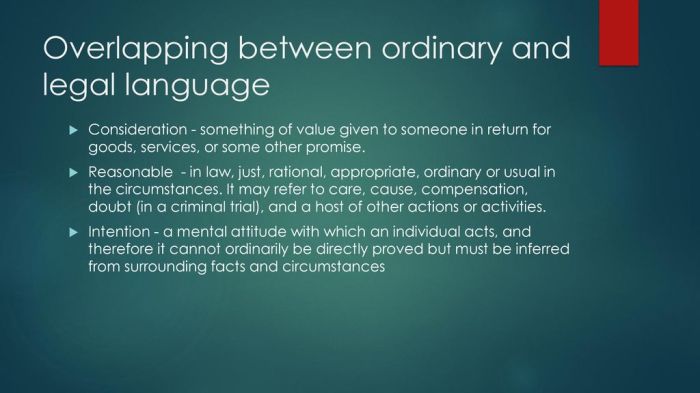Ordinarily a promise to perform an existing legal obligation is not enforceable. This means that if you promise to do something that you are already legally obligated to do, that promise is not legally binding. This rule is based on the principle that a person should not be able to receive additional compensation for doing something that they are already required to do.
There are a few exceptions to this rule. For example, a promise to perform an existing legal obligation may be enforceable if it is made in writing and signed by the promisor. Additionally, a promise to perform an existing legal obligation may be enforceable if it is made in exchange for new consideration.
Legal Obligation Definition: Ordinarily A Promise To Perform An Existing Legal Obligation Is

A legal obligation is a duty or responsibility imposed by law. It is a legal requirement that an individual or entity must fulfill. Legal obligations can arise from various sources, such as statutes, regulations, contracts, and common law.
Examples of legal obligations include paying taxes, obeying traffic laws, and fulfilling contractual agreements. The nature and scope of legal obligations vary depending on the specific source of the obligation.
Promise to Perform Existing Legal Obligation
A promise to perform an existing legal obligation is a promise to fulfill a duty that is already legally binding. It is generally not considered to be a legally enforceable contract because the promisor is already obligated to perform the act.
The distinction between a promise and a contract is that a contract creates a new legal obligation, while a promise to perform an existing legal obligation does not. This means that a promise to perform an existing legal obligation is not supported by consideration, which is an essential element of a contract.
Exceptions to the Rule
There are exceptions to the rule that a promise to perform an existing legal obligation is not enforceable. These exceptions include:
- New consideration:If the promise is supported by new consideration, it may be enforceable as a contract.
- Modification of existing obligation:A promise to modify an existing legal obligation may be enforceable if it is supported by consideration and meets the requirements for modifying a contract.
- Estoppel:A promise to perform an existing legal obligation may be enforceable if the promisor has made representations or taken actions that have led the promisee to reasonably rely on the promise.
Practical Implications, Ordinarily a promise to perform an existing legal obligation is
The rule that a promise to perform an existing legal obligation is not enforceable has several practical implications. For example, it means that:
- Individuals cannot avoid their legal obligations by simply promising to perform them.
- Parties to a contract cannot modify the terms of the contract without consideration.
- Promises made in reliance on existing legal obligations may not be enforceable.
Query Resolution
What is a legal obligation?
A legal obligation is a duty that is imposed by law. Legal obligations can arise from a variety of sources, such as contracts, statutes, and regulations.
What is the difference between a promise and a contract?
A promise is a statement of intent to do something. A contract is a legally binding agreement between two or more parties.
When is a promise to perform an existing legal obligation enforceable?
A promise to perform an existing legal obligation is enforceable if it is made in writing and signed by the promisor, or if it is made in exchange for new consideration.

